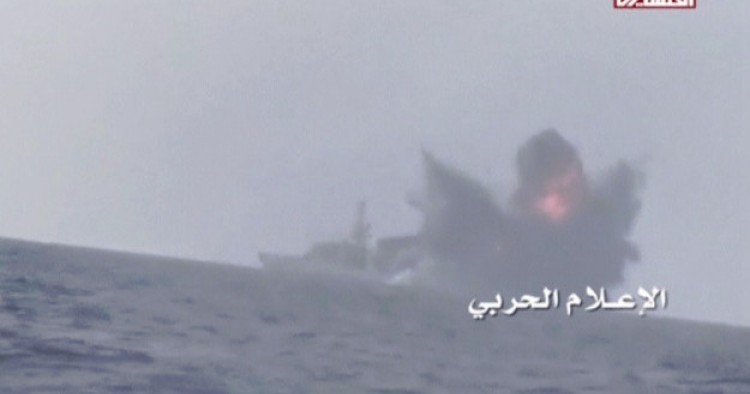Major General Ahmed al-Assiri, the spokesperson of the Saudi-led coalition forces, has accused Iran of intensifying and prolonging the Yemeni conflict by supporting Houthi rebels, including sharing missile technology with the militants. He also blamed Iran for instability and conflict in the broader Middle East region by supporting extremist and militant groups, particularly in Yemen, Lebanon, Syria, Iraq and the Sinai Peninsula. According to Assiri, who is also an advisor to Saudi Defense Minister and Deputy Crown Prince Mohammad bin Salman, Saudi Arabia intervened militarily in Yemen to respond to “Iran’s aggressive meddling in Yemen.” Separately, a quartet of Arab foreign ministers and a representative from the Arab League met today in the Jordanian capital of Amman to discuss ways of countering Iranian interference in the Arab world. A joint communique released after the meeting condemned Iran’s role in inflaming sectarian tension in the Middle East.
Comment: U.S. and regional leaders claim that Tehran has recently deepened its involvement in Yemen's two-year conflict by providing Houthi rebels with sophisticated weapons. A report by Reuters published on March 21 quoted an unnamed Iranian official as revealing that Major General Qassem Soleimani, the commander of Iran’s elite Qods Force, met with top Islamic Revolution Guards Corps (I.R.G.C.) officials in Tehran last month to explore ways of empowering the Houthis. Furthermore, a new report by the U.K.-based Conflict Armament Research (CAR), suggests that Iran has transferred aerial drone technology to Houthis, who use the explosive-laden drones to disable Saudi-led coalition’s missile defense system and then fire missiles at coalition targets.
Iran’s support for Houthis has been a constant source of tension between Iran and Sunni Gulf states, particularly Saudi Arabia and the United Arab Emirates. But if the latest reports about Iran’s plan to further expand its role in the Yemeni war are accurate, Tehran will soon find itself on the path of confrontation with Washington over Yemen as well. According to U.S. media, Defense Secretary Jim Mattis has recently asked the White House to lift restrictions imposed by the Obama administration and allow the U.S. military to more actively support Gulf allies against the Iran-supported Houthi rebels in Yemen. If approved, the measure will significantly change the U.S. policy in Yemen – which has so far been mainly confined to fighting against an al Qaeda franchise there.
The Middle East Institute (MEI) is an independent, non-partisan, non-for-profit, educational organization. It does not engage in advocacy and its scholars’ opinions are their own. MEI welcomes financial donations, but retains sole editorial control over its work and its publications reflect only the authors’ views. For a listing of MEI donors, please click here.












